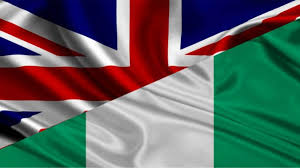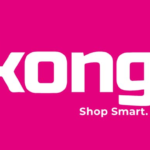Refined oil made up more than two-thirds of the United Kingdom’s total goods exports to Nigeria in the four quarters ending June 2025, rising sharply to £1.5 billion, according to TechMarge. The UK Department for Business and Trade released this figure in its latest UK–Nigeria Trade and Investment Factsheet, based on data from the Office for National Statistics.
The report showed that refined oil accounted for 68.8 per cent of all goods the UK exported to Nigeria during that period, marking a 62.8 per cent increase compared to the previous year. Total UK exports to Nigeria climbed by 12.3 per cent to £5.6 billion, while imports from Nigeria grew by 8.2 per cent to £2.3 billion. This pushed total bilateral trade in goods and services to £8 billion, up by 11.1 per cent or £793 million from the previous year.
The report highlighted that refined oil remained the main driver of UK exports to Nigeria, followed by toilet and cleansing products worth £55.8 million, general industrial machinery valued at £42.7 million, textile fabrics worth £40.1 million, and mechanical power generators at £35.1 million. Each of these top export categories recorded growth from the previous year: industrial machinery rose by 36.4 per cent, toilet and cleansing products by 26.5 per cent, textile fabrics by 14.5 per cent, and mechanical power generators by 8.7 per cent.
Goods exports represented £2.2 billion or 38.4 per cent of total UK exports to Nigeria, while services contributed £3.5 billion or 61.6 per cent. Goods exports surged by 43.5 per cent during the period, but services exports dropped slightly by 1.1 per cent.
Crude oil remained Nigeria’s top export to the UK, valued at £1.3 billion and accounting for 73.1 per cent of all goods shipped to Britain. Refined oil followed at £223.8 million or 13.1 per cent, while gas exports totalled £167.8 million or 9.8 per cent. Nigeria also exported beverages and tobacco worth £14.6 million—a 29.8 per cent increase—and plastics in primary forms valued at £12.8 million.
Gas exports from Nigeria to the UK grew by 75 per cent year-on-year, marking the fastest growth among all categories. Refined oil exports rose by 62.6 per cent, and crude oil shipments increased by 7.9 per cent. The Dangote Petroleum Refinery, with its capacity to process up to 650,000 barrels of crude per day and plans to double that output, continues to help Nigeria export more refined oil instead of just crude.
The UK recorded a trade surplus of £3.3 billion with Nigeria in the four quarters to June 2025, up from £2.8 billion a year earlier. The goods trade surplus expanded to £441 million from £51 million, while the services surplus stayed steady at £2.8 billion.
Nigeria ranked as the UK’s 36th largest trading partner and 27th largest export market, accounting for 0.4 per cent of total UK trade. It stood as the UK’s 47th largest import partner, making up 0.2 per cent of total imports.
Despite the trade growth, investment between the two countries weakened. The UK’s foreign direct investment stock in Nigeria dropped by 24.7 per cent to £385 million by the end of 2023, while Nigeria’s investment in the UK fell by 41.2 per cent to £489 million during the same period.
London and the South East of England contributed the largest share of the UK’s goods exports to Nigeria in 2024, showing the regional concentration of trade activity. The UK’s overall market share in Nigeria rose to 11 per cent in 2024 from 9.7 per cent a year earlier, largely due to stronger goods exports, which pushed the UK’s share of Nigeria’s total goods imports to 5.2 per cent.
Nigeria’s refined oil imports, however, are expected to drop sharply in the coming months after President Bola Tinubu approved a 15 per cent import levy on petrol and diesel. The government introduced the levy to protect the country’s growing refining capacity. Applied on Cost, Insurance, and Freight values, the levy will raise the landed cost of imported refined products by about N99.72 per litre, making foreign fuel imports less competitive than locally refined products.
Industry experts and petroleum marketers have voiced concerns about the timing and impact of the tariff, warning that it could raise pump prices and worsen economic strain on consumers. Some analysts believe the policy will discourage imports and shift demand toward local refiners such as the Dangote Petroleum Refinery and other modular plants. Energy experts argue that while the levy might cause short-term pain, it could stabilize supply, boost government revenue, and strengthen Nigeria’s refining industry in the long run.



















